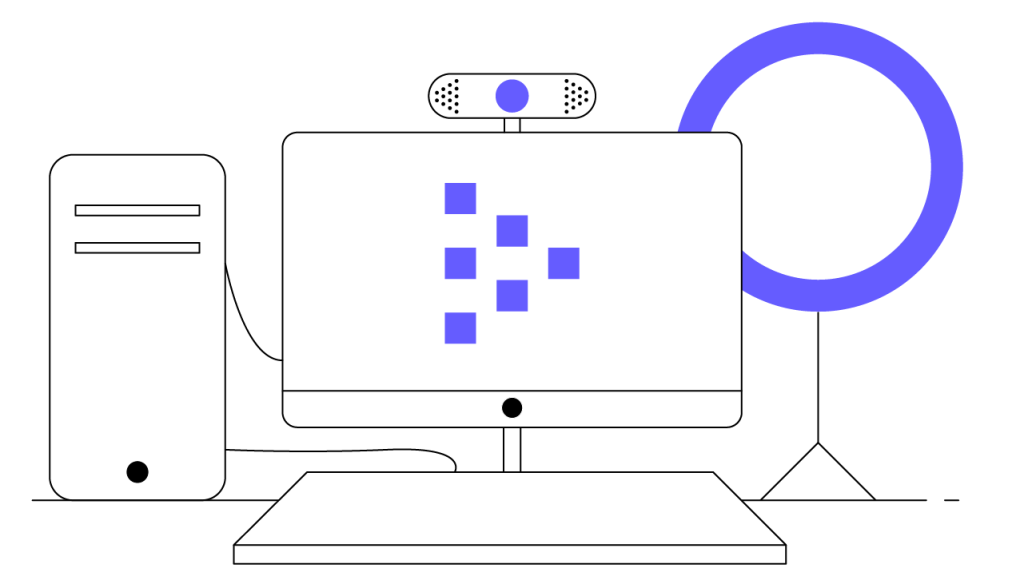Livepeer (LPT): Decentralized Video Transcoding Services
Livepeer is an Ethereum-based protocol offering decentralized infrastructure for video streaming.
Updated October 15, 2023 • 3 min read

Summary
Livepeer is an Ethereum-based protocol that distributes video transcoding work throughout its decentralized network. The protocol aims to provide cost efficient, secure, and reliable infrastructure that can handle today’s high demand for video streaming.
Livepeer is a scalable Platform-as-a-Service (PaaS) for startups and organizations looking to add live or on-demand video to their offerings. At its core, Liverpeer is an Ethereum-based protocol for video transcoding, which refers to the reformatting of a video to suit a variety of bandwidths and devices. Designed to make streaming more reliable while reducing costs, Livepeer acts as a decentralized marketplace for developers building applications that integrate live video and transcoding providers. The network’s native token is the Livepeer Token (LPT).
At its core, Livepeer seeks to offer a scalable and cost-effective infrastructure solution that can meet today’s demand for streaming. Beyond accounting for 80% of internet bandwidth consumption, video streaming is also extremely costly on the computing side, largely because video distributors must first transcode video before broadcasting it. The resulting costs have meant that many video streaming companies have resorted to selling user data and subjecting users to ads to earn revenue to pay their infrastructure bills. Livepeer seeks to offer a decentralized, token-incentivized, and open network to replace this model — and claims that it can reduce costs up to 50x compared to legacy methods.
How Does Livepeer Work?
First, nodes called Broadcasters send video streams to the network for transcoding. These streams are received by Orchestrators — users who contribute their computer’s CPU, GPU, and bandwidth to the network in exchange for fees denominated in ether (ETH) charged to Broadcasters. To become an Orchestrator, you must know how to stake Livepeer. As an Orchestrator, your LPT stake could be slashed if you behave maliciously or suboptimally.
Orchestrators serve as coordinators, being responsible for ensuring that video is correctly transcoded. They send the video to Transcoder hardware that encodes and reformats the video before sending it back to Orchestrators. Work is distributed to Orchestrators in proportion to the amount of LPT they have staked. The Transcoders that perform the work are often GPUs which are mining digital currencies, but also happen to have video encoding ASICs sitting idle during the mining process. Livepeer enables these ASICs to be put to use, driving additional revenue for the operators, all without disrupting their mining operations.
If you are a LPT holder but do not wish to participate as an Orchestrator or Transcoder, you can stake your LPT tokens with an Orchestrator in exchange for a portion of the Orchestrator’s earned rewards and fees.
Consensus on Livepeer
Livepeer utilizes a two-layer consensus mechanism. First, the Livepeer ledger and its transactions are recorded on and secured by the Ethereum blockchain. The second consensus layer handles the distribution of newly generated LPT and verifies that transcoding work has been done correctly. This layer utilizes a Delegated Proof-of-Stake (DPoS) model in which Orchestrators act as validators — nodes that participate in the protocol to ensure proper payment settlement, token distribution, and security. When one Orchestrator performs transcoding work, Broadcast nodes can self-validate or outsource to other Orchestrators to check for mistakes and malicious behavior. This is a costly operation, so Livepeer only randomly verifies a small percentage of the work done.
The Livepeer Token (LPT)
LPT is designed to act as a coordination and incentive mechanism that helps keep the network as cost-effective, reliable, and secure as possible. It serves as a bonding mechanism to financially incentivize Orchestrators to act honestly, thus securing the network.
New Livepeer tokens are minted at the conclusion of periods known as ‘rounds,’ and are distributed to Delegators and Orchestrators in proportion to their stakes. This is intended to give those who participate in Livepeer more ownership over the network than those who do not participate. One round corresponds to roughly 24 hours. The inflation rate of LPT adjusts automatically depending upon how many tokens are staked out of the total supply in circulation. This is designed to keep participation in the network at a desirable level.
Livepeer’s decentralized architecture provides video broadcasters with an alternative to the costly, centralized infrastructure that has traditionally been relied on. However, broadcasters are not the only stakeholders who stand to benefit. Livepeer’s model could enable video streaming companies to explore new business models which don’t rely on selling user data and serving ads — creating a better experience for consumers.
Likewise, Livepeer predicts that its technology could make a variety of new services possible, such as pay-as-you-go content consumption and better creator-economy streaming applications that create better alignment between content creators, consumers, and platforms themselves. Livepeer also provides a long-needed decentralized solution for embedding video into decentralized applications (dApps).
Cryptopedia does not guarantee the reliability of the Site content and shall not be held liable for any errors, omissions, or inaccuracies. The opinions and views expressed in any Cryptopedia article are solely those of the author(s) and do not reflect the opinions of Gemini or its management. The information provided on the Site is for informational purposes only, and it does not constitute an endorsement of any of the products and services discussed or investment, financial, or trading advice. A qualified professional should be consulted prior to making financial decisions. Please visit our Cryptopedia Site Policy to learn more.

Is this article helpful?


